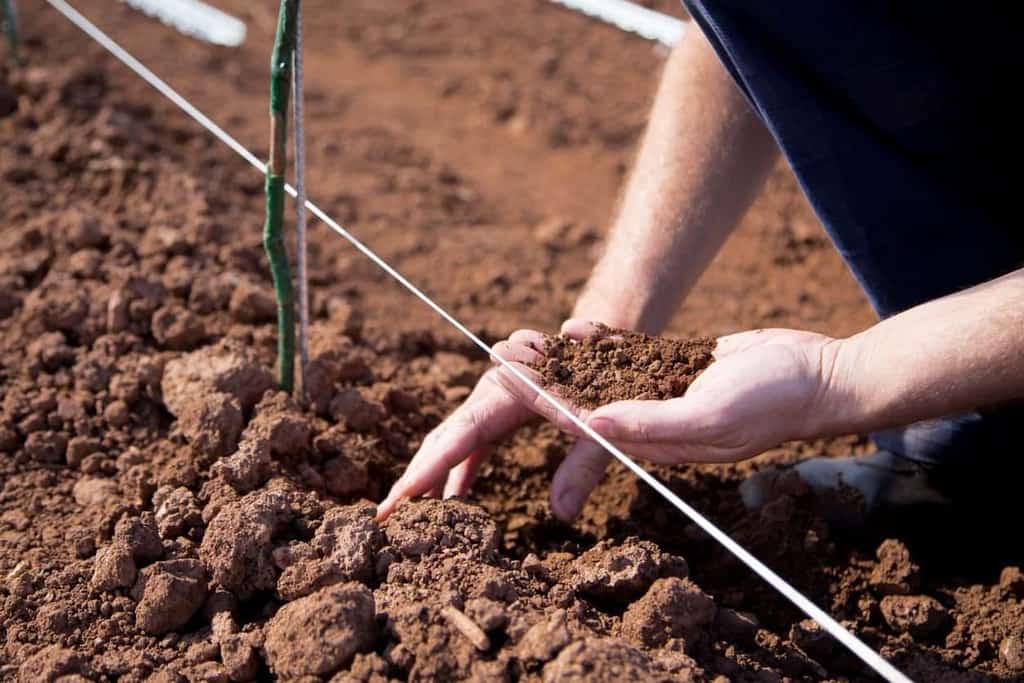 Despite the fact that minerality in wine is a tasting characteristic present even on the Court of Master Sommeliers Exam, new research on wine and minerality conducted by The Barcelona Wine School (Outlook Wine) and Excell-Ibérica, a wine research company based in Logroño, La Rioja, Spain, is providing more evidence against the idea that mineral flavor is a result of the soil composition within which vines grow.
Despite the fact that minerality in wine is a tasting characteristic present even on the Court of Master Sommeliers Exam, new research on wine and minerality conducted by The Barcelona Wine School (Outlook Wine) and Excell-Ibérica, a wine research company based in Logroño, La Rioja, Spain, is providing more evidence against the idea that mineral flavor is a result of the soil composition within which vines grow.
The newly released study was part of a 2 year ongoing process by both Director of Laboratorios Antonio Palacios García at Excell-Ibérica in Logroño, and David Molina, Director of Outlook Wine. Given the presence of the word ‘minerality’ as it relates to the wine world, the two wine enthusiasts sought to be as objective as possible. As such, this new minerality research project was fully funded by García and Molina themselves.
The Purpose of The Study
The focus of this study was to show what relationship, if any, the chemical makeup of wine had with human perception of minerality as it relates to taste and aroma.
Note that while the study was not conclusive, it does add to a growing body of evidence that the perception of mineral flavors in wine may actually have nothing to do with a vines ability to process minerals present in the soil. The study instead points to a variation in chemical compounds present in wines but unrelated to minerals, as the influencing factor determining our perception of minerality. Subtleties related to the wine making process, acidic content, aging techniques and fermentation are more likely than not the source of these mineral tasting notes.
The “terroir” theory as it relates to influencing mineral flavors in wine has long been thought to help express stony, earthy or flint and slate-like notes and aromas in wines. However, there has never really been any scientific basis behind this belief.

“The simple fact of linking a wine to visible stones, rocks and boulders or non- visible constituent minerals of a vineyard is not sufficient to argue its mineral sensory perception, if we are to be strict in terms of scientific curiosity,” they argue.
The new minerality study included 17 different wines from wine growing regions dotted throughout the globe. The chemical makeup of each wine was dissected, and for the purpose of the study was broken down to gain insight into metal content & composition,, acid & pH levels, sulfur and other organic compounds and components. The wines were also chosen based on the fact they were thought to contain obvious mineral flavors and or aromas.
 In the end, “11 chemical compounds were found which stood out and were classified in three categories with a direct relationship to the descriptor minerality,” according to the research.
In the end, “11 chemical compounds were found which stood out and were classified in three categories with a direct relationship to the descriptor minerality,” according to the research.
While it’s progress that these compounds could potentially be connected to our perception of minerality, the most disruptive thing to the wine world may be the fact that these compounds have no direct relationship to a particular rock present underneath a vines roots… to put it in laymans terms.
“In the 21st century the wine sector must progress,” they say. “Today there is no reason for this term to be attached to the type of descriptors associated with stones or rocks very well known in the world of wine tasting, because it is often associated with the reduced status of wine (complex sulfur compounds).”
Palacios and Molina acknowledge the fact that the study in its entirety does not cover every possible angle for determining minerality’s origin, and more research is needed. However it does provide some interesting clues and makes one wine enthusiast think… “have we been wrong all along?”
“We cannot say the minerality is a falsehood or an irrefutable fact, but rather a rewarding aspect within all possible articulated sensory interpretations of wine, which it really is a box of surprises,” notes the recent research.
You may download the entire study here.
More Resources on Minerality
Understanding “Minerality:” A Practical Assessment
